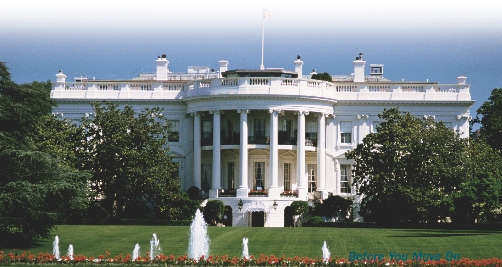Congress cannot favor one state over another or grant titles of nobility, such as duke or earl. Finally, Article I says Congress also can make any laws “necessary and proper” to carrying out its powers. This elastic clause was a way for future Americans to expand the meaning of the Constitution.
The Executive Branch
Article II describes the office of the President and who can fill the office. It also tells what powers and duties that person has. The President serves as commander-in-chief of the military. With Senate approval, the President also makes treaties and appoints ambassadors and judges. One of the President’s most important duties is to give Congress information about the State of the Union. This means the President reports on how the United States is doing and urges Congress to pass laws that the country needs.
Today, the executive branch of government is huge. It employs millions of people. The delegates never imagined how our government would grow. They gave the President enough power, however, to carry out Congress’s laws. As our society grew and became more complex, so did our government.

The President leads the government from his office in the White House.